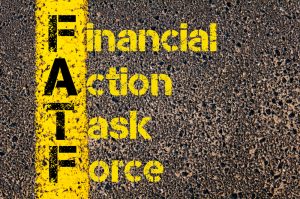Red Flags – Beware of Money Laundering and Terrorist Financing

Financial institutions and firms and individuals in the wider regulated sector are at the forefront of the fight against money laundering, Criminally derived property can be laundered by using an almost infinite number of methods involving all financial services and products. So banks and other financial institutions consider the gatekeepers of the financial system and hold a high level of responsibility to prevent financial crime.
The financial sector is required to operate within the anti-money laundering regulations in place in the country in which they are based. These regulations are based on the Financial Action Task Force FATF International Standards on Combating Money Laundering and the Financing of Terrorism & Proliferation (often referred to as the FATF 40 Recommendations) as interpreted by the EU Money Laundering Directive (3rd and 4th Money Laundering Directives).
The Money Laundering Regulations set standards for identifying customers and beneficial owners, applying customer due diligence and identifying higher risk situations when enhanced levels of due diligence are required.
Banks are being challenged by their customers, supervisors, governments and FATF to identify and manage risk, whilst the financial and reputational penalties for getting their controls wrong are also rising to record levels. To operate a risk-based system of controls, a firm has to, by definition, be able to recognize risk.
Financial institutions are also required to identify politically exposed persons (PEP) within their customer base to ensure they apply a higher level of due diligence to the activity in their accounts for preventing money laundering and potential corruption. To do this they check their new customers against commercial databases that identify individuals whose official position makes them a potential risk.

The financial sector, by necessity, must ensure that it has reasonable controls in place to show that it can recognize and reject known risks. It also routinely checks account holders’ details against other publicly available information, often referred to as adverse media checking. This involves looking for data from newspapers, court listings, outcomes of cases or details of previous activities that may suggest the customer is either hiding information or has a record of activity that creates an unacceptable business risk.
Financial institutions must have their internal system to maintain the integrity, implement monitor program , risk management and compliance, this will maximize the effectiveness of fighting financial crime.
GLOMACS training course entitled examines how this is done and suggests that a large part of the effort expended by financial institutions look backwards at known threats rather than protecting institutions by looking forward to identify current and future threats.


